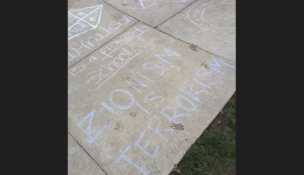Wisconsin county’s threat to journalists came from top
By: Associated Press//December 12, 2019//
MADISON, Wis. (AP) — A Wisconsin county’s ridiculed resolution seeking to dictate, under the threat of prosecution, how the media could report on a water study was the brainchild of a neighboring county’s top official, newly released records show.
Ideas for the Lafayette County resolution, which was widely condemned as illegal, came from Iowa County’s board chairman, John Meyers, according to documents obtained by the Wisconsin State Journal under the state’s open records law.
When reached for comment by the newspaper, Meyers denied being the author of the Lafayette County resolution, which was ultimately gutted to remove the provisions targeting journalists. He said there is a difference between making suggestions and writing a resolution, the State Journal reported in a story published Thursday.
Before it was changed, the resolution was widely seen as illegal, unenforceable and unconstitutional.
As for the suggestion to prosecute reporters, “that was just me venting,” Meyers said.
The records show that Meyers sent Grant and Lafayette County officials suggestions for the resolution. As for the media, the recommendation stated that “under no circumstances are they to be allowed to glean information and selectively report it in order to twist results.”
“Maybe make the press sign a cooperation agreement,” Meyers wrote to Lafayette County economic development director Abby Haas and Grant County Board Chairman Bob Keeney. “Threaten to prosecute them for slander.”
His suggestions also called for censuring board members “caught distorting information intentionally.”
Keeney emailed Meyers and Haas on Nov. 1 to say he appreciated Meyers’ resolution language and said, “I agree that we need to be on the same page.”
The Lafayette County Land Conservation Committee approved the modified version of the resolution on Nov. 12. It was then stripped of other controversial provisions and tabled by the full county board later that night. No such resolution was offered in either of the other two counties that are a part of the water study.
Attempts to control the flow of information from the Southwest Wisconsin Groundwater and Geology Study, or SWIGG, came after county officials complained that national and state media outlets had reported study findings incorrectly in April. The initial, inaccurate report said that 91% of the entire region’s private wells were contaminated, when in fact that percentage applied to only a small subset of wells that had already been found to be contaminated.
Federal and state researchers have been working on a joint study measuring contamination in private wells in Grant, Iowa and Lafayette counties, which are in southeastern Wisconsin. The test results have gotten attention because they highlight the potential vulnerability of Wisconsin groundwater from agricultural practices and defective septic systems.
Legal News
- State Bar of Wisconsin names election winners
- Protests erupt on college campuses throughout Midwest, and U.S. over war in Gaza
- Newly filed report with federal court seeks Havana Syndrome transparency
- Questions of transparency, leadership responsibility linger over State Bar trust
- Firm demands $4.3M in dispute with Wisconsin client
- Chesebro among those charged with interfering in 2020 election
- FTC hits Williams-Sonoma with ‘record civil penalty’ for Made in America claims
- Harvey Weinstein due back in court, while a key witness weighs whether to testify at a retrial
- Flight attendant indicted in attempt to record minor in airplane bathroom
- Wisconsin attorney loses law license, ordered to pay $16K fine
- Former Wisconsin police officer charged with 5 bestiality felony counts
- Judge reject’s Trump’s bid for a new trial in $83.3 million E. Jean Carroll defamation case
WLJ People
- Power 30 Personal Injury Attorneys – Russell Nicolet
- Power 30 Personal Injury Attorneys – Benjamin Nicolet
- Power 30 Personal Injury Attorneys – Dustin T. Woehl
- Power 30 Personal Injury Attorneys – Katherine Metzger
- Power 30 Personal Injury Attorneys – Joseph Ryan
- Power 30 Personal Injury Attorneys – James M. Ryan
- Power 30 Personal Injury Attorneys – Dana Wachs
- Power 30 Personal Injury Attorneys – Mark L. Thomsen
- Power 30 Personal Injury Attorneys – Matthew Lein
- Power 30 Personal Injury Attorneys – Jeffrey A. Pitman
- Power 30 Personal Injury Attorneys – William Pemberton
- Power 30 Personal Injury Attorneys – Howard S. Sicula











